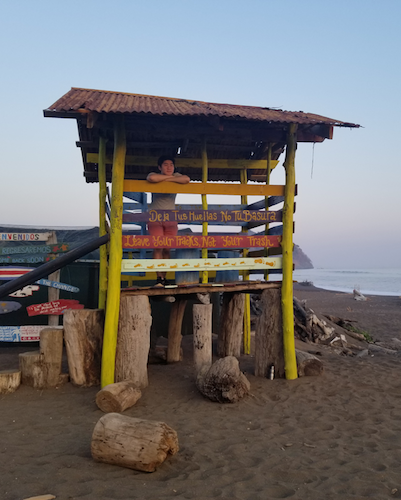HBA Sustainability Certificate
Empowering the next generation of sustainable leaders
As a student of many things I have always been curious about how systems work (or don't work). The ways symbolic worlds dictate our physical one -- data, money, language -- fascinate me, and I believe understanding them is key to bettering ourselves and our impact in the world. Whether working abroad, being involved in the arts, or volunteering for various social impact organizations, I love learning from a variety of people and ideas. Equitable social policies and sustainable international development are important to me, and I believe all stakeholders can affect positive change in society. Extremely excited for the Ivey sustainability certificate!
What is your personal definition of sustainability?
I believe sustainability in society and the economy means feasible and ethical processes that seek to benefit humans as a collective in the long-term. Environmentally, this is more intuitive, but I believe the same tenets of environmental sustainability can transfer to the business and social realm – a long-term, empirically-driven focus on rectifying human error can apply to human-driven systems like business, manufacturing, and investing. Socially, I believe this means fairer and more understanding policies and institutions that rectify social injustices done to marginalized groups in the past, and which enable the whole range of humanity to enjoy freedom of expression, a high quality of life, and their own beliefs. This extends to business that have a triple-bottom line, or are social-purpose oriented as much as profit-oriented, a trend in capitalism today. To me, sustainability means looking at the holistic confluence of factors that lead to better outcomes for the collective of humanity and the planet, and is inherently against a self-interested, zero-sum mentality. This plays out differently based on the context, and I believe the sustainability certificate would give me greater exposure and applicability of sustainability in its different forms, whether that be in industries, technologies, or professional roles.
What role do you see sustainability playing in your professional career?
I believe working towards sustainability is necessary for any organization and role that I take on. Sustainability rhymes with social purpose and social impact, and I both in the negative – avoiding non-sustainable activities and organizations – and in the positive, sustainability is important for my career. I am greatly frustrated by invisible barriers which hinder meritocracy and freedom of expression whether that be in education, the professional world, or society in general. As a first-generation immigrant, visible minority, and LGBT individual, I am thankful for the opportunities afforded to me. However, many are not so fortunate. A lack of consistency - or faith - in fairness and freedom for all groups erodes society and restricts human potential. I believe the way to resolving these injustices is to first understand and then rectify unjust biases, system, and institutions. This might come in the form of formal policies, media, or grass-roots initiatives to increase engagement with under-represented groups, or those that do not have a voice, like animals or the planet itself. In my professional and educational experiences so far I have sought to encourage and support sustainable practices and policies, whether that be in the non-profit, start-up, private, or public sector.
What sustainability projects have you been engaged in?
AIESEC Western: In my involvement with AIESEC, I have helped deliver international internships to individuals abroad to benefit cross-cultural understanding and economic development. My typical week with AIESEC consists of external prospecting, marketing towards local students, and assisting with program logistics. This takes at least ten to upwards of thirty hours a week, on top of a full course-load and other extracurriculars. The work is often difficult and can be draining, but the results are incredibly rewarding. Most recently our intern from Tunisia, who came in 2016, applied and received his permanent resident status. Together, my Incoming Exchange portfolio this year has connected five more international graduates to Canadian internships. As a chapter, we delivered over 100 exchange experiences last year.
The Walrus Foundation: In a small team, we are helping develop an impact assessment framework for one of Canada’s leading independent journalistic and informational organizations. Understanding social impact and sustainability at each level – from the digital, to the legal, to the political and social – is important for future actions in the space. Without measurement, it is difficult to strategize impact, and allocate resources to further social impact goals.
Anthony Tan
